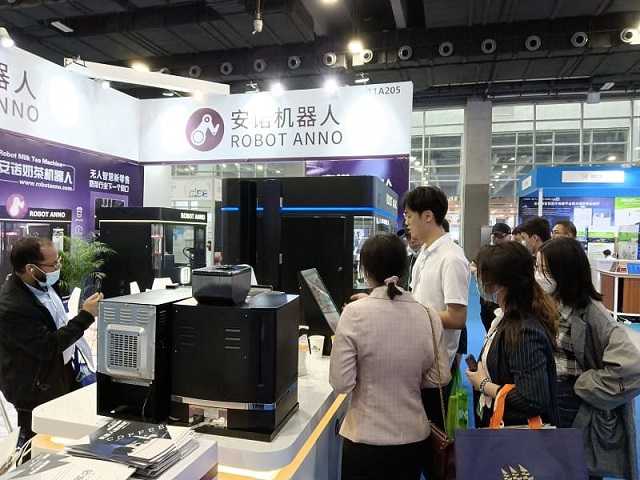
SHENZHEN, Guangdong, China – In an era where consumer demands for speed, convenience, and sustainability collide with escalating labor shortages, the retail landscape is undergoing a seismic shift toward automation. Enter the unmanned retail revolution, where AI-driven machines are not just dispensing products but redefining entire business models.
At the forefront of this transformation stands Anno Robot, a Shenzhen-based innovator that’s captivating global brands with its precision-engineered solutions. As we delve into the burgeoning automated retail sector—projected to surge from $48.35 billion in 2024 to $51.97 billion in 2025—and spotlight Anno Robot’s pivotal role, one thing is clear: the future of retail is robotic, efficient, and unstoppably 24/7.
The Dawn of Automated Retail: Trends Shaping a $50 Billion Industry
The automated retail industry, particularly in unmanned vending and beverage dispensing, is exploding into 2025 as businesses grapple with post-pandemic realities: rising operational costs, workforce gaps, and a relentless push for contactless experiences.
According to recent market analyses, the global vending machine sector is poised for compound annual growth exceeding 7%, fueled by advancements in artificial intelligence (AI), Internet of Things (IoT), and modular robotics. At the heart of this boom lies the unmanned coffee vending machine market, a niche that’s not just surviving but thriving, with robust demand for on-the-go, high-quality brews in an increasingly caffeine-fueled world.
One of the most compelling trends is the integration of AI into coffee preparation, birthing sophisticated AI coffee machines and AI coffee robots that mimic barista artistry without the human error.
These devices leverage machine learning algorithms for predictive maintenance, ensuring uptime rates above 98% and reducing downtime by up to 40%. Imagine a system that anticipates filter clogs or bean shortages via IoT sensors, dispatching alerts before issues escalate—this isn’t sci-fi; it’s the standard for 2025 deployments. Personalization is another game-changer: AI algorithms analyze user preferences from past orders, suggesting custom blends like oat milk lattes with precise foam ratios, all served in under 45 seconds. This hyper-customization boosts customer satisfaction by 25%, turning one-off transactions into loyalty loops.
Sustainability is weaving its way into the fabric of these innovations, too. With eco-conscious consumers driving 70% of purchasing decisions, unmanned vending giants are adopting biodegradable cups, energy-efficient bean-to-cup grinders, and solar-powered kiosks to slash carbon footprints by 30%. The retail vending machine market, expected to balloon to over $100 billion by 2035, reflects this ethos, with automation enabling “zero-waste” operations through exact portioning that minimizes spoilage. In high-traffic venues like airports and malls, these machines aren’t mere dispensers; they’re micro-economies, generating passive revenue streams with ROI timelines as short as six months.
Yet, challenges persist. Labor shortages in the service sector—exacerbated by global events—have spiked hiring costs by 20% in the last year, pushing retailers toward fully autonomous models. Regulatory hurdles around food safety and data privacy loom large, but forward-thinking firms are navigating them with CE, FCC, and ISO certifications.
Moreover, the rise of smart payments—contactless NFC, app integrations, and even cryptocurrency—has democratized access, making unmanned setups viable for SMEs. By 2030, experts predict 40% of urban retail will be automated, with AI coffee robots leading the charge in beverage categories, which account for 35% of vending sales.
The unmanned coffee segment alone is forecasted to grow at a 12% CAGR through 2033, propelled by urban migration and the gig economy’s demand for round-the-clock fueling stations.
As brands like Starbucks experiment with drive-thru bots and European chains roll out AI kiosks in train stations, the message is unequivocal: adapt to automation or risk obsolescence. In this high-stakes arena, where precision meets profitability, companies that master AI-driven retail aren’t just competing—they’re owning the future.
The post Coffee Robot Leader Anno Robot reaches more than 60 countries appeared first on Comunicaffe International.
